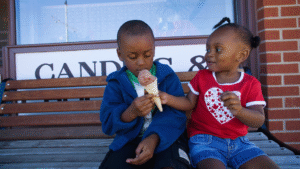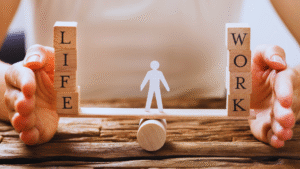Losing a family member is one of the most difficult experiences a person can face. It’s even more challenging when it happens suddenly, as can happen when a loved one dies unexpectedly. Sometimes it doesn’t take long after death for the news to settle in, but for some, the grieving process takes much longer. They may consider themselves “over it”, only to discover that the loss is still on their minds years down the road.
When it’s time to deal with the death of a loved one, you may find yourself attempting to cope by burying your feelings. Unfortunately, burying your feelings isn’t the best coping mechanism to deal with a death, especially if the death was traumatic. Grief is a complicated and multifaceted psychological process that’s not easy to describe or understand, but there are ways to deal with loss.
Let Yourself Feel the Pain and All the Other Emotions
Losing a loved one is always hard, especially for someone close. You are probably feeling a wide range of emotions right now. You may feel a deep sense of shock, grief, numbness, guilt, anger, or even betrayal. Let yourself feel those raw emotions, and as difficult as it may be, allow yourself to cry when you need to. Don’t bottle it up!
Get the Last Rites and Other Steps Over With
Dealing with the loss of a family member is an emotionally challenging journey, and it involves a series of practical steps that can often feel overwhelming. One of the initial tasks to address is ensuring that your loved one receives the appropriate last rites and funeral arrangements in accordance with their beliefs and wishes. Alongside these rituals, there are logistical matters to attend to, such as obtaining a death certificate, handling legal matters related to the deceased’s estate, and taking care of the physical possessions they’ve left behind. In some cases, you may need to consider seeking professional help. Deceased estate rubbish removals, for instance, could manage the process of clearing out their belongings in an efficient yet respectful manner. While these practical steps can seem daunting, they are essential for honoring your loved one’s memory and finding closure.
Focus on Yourself
Losing a family member can be a heartbreaking experience, but you can help ease the suffering by taking care of yourself. This might mean spending time with friends, exercising, eating healthy, or engaging in therapy. While it may seem like a selfish choice, it’s important to remember not to become too consumed by your emotions when you start to heal. The healing process can be a long and difficult one, and the best thing you can do for yourself is to care for yourself so that you can better care of yourself and your family going forward.
Express Your Feelings
Coping with the loss of a family member is no easy task, and for the first few weeks, you’ll probably spend most of your time crying. Crying is healthy up to a point, but if you can’t stop, you need to talk to someone about your feelings. Getting things off your chest can help massively, and a problem shared is a problem halved. This is why talking therapy is so often prescribed for those suffering from grief – getting things out in the open will feel like a weight off your shoulders and will help you to understand your feelings better.
Keep Their Memory Alive
It is difficult to let go of a loved one, especially when you shared a strong bond with them. But there are ways you could cherish the time you spent with them – by keeping their memory alive. Keep their photos and videos intact, and perhaps, frame a few. Keep their room tidy and place their belongings where they should be. And if want to take it a step further to immortalize them, you could convert their ashes to jewels. The diamonds made through this conversion process can come in different colours and shapes, which could make for an exquisite piece. There are many things you could do to cherish them, and the way you want to maintain it should rest on you.
Reach Out for Help
Whilst it’s good to find your similarities with those close to you, everyone grieves differently and grieves at their own pace. It’s no surprise that grieving can leave you feeling completely overwhelmed and helpless. If you’re struggling to deal with the loss of a family member, you’re not alone. You can reach out to charities like Mind for mental health support, or you might even want to call your GP to arrange therapy sessions. Don’t cope alone; reach out.
That said, if you are in your old age then it is undeniable that losing a loved one can be especially painful and triggering. It can not only induce a fear of death but also make you feel guilty as an older adult, especially if the person who passed away is younger than you. It’s important to remember that while such feelings are natural and completely understandable, seeking mental health services for seniors can be a wise decision. These mental health professionals can assist you in grieving your loss and navigating the complex emotions that often accompany it. Keep in mind that seeking help is a sign of strength, and you don’t have to go through this journey alone.
Relate Yourself to Others
Losing a loved one is a lonely experience, and at times it can feel like nobody understands your pain. It’s important to remember, however, that everyone around you probably feels exactly the same way. You’re not doing this alone, so talk to your family and friends who are also grieving. You may find that you relate to their feelings closely, which will help you to see that your feelings are normal. Knowing they feel the same way will also bring you closer, so this could be a good thing at the end of the day.
Continue Your Normal Lifestyle
You might be wondering how to cope with that loss, how to take care of yourself, and what to do to keep your relationships strong while grieving. While it might not seem possible to get back to normal, it is possible to maintain a normal lifestyle, even after losing a family member. Take small steps at a time to maintain a sense of normality, even if it just means getting dressed or making a cup of tea.
Losing a loved one can be emotionally devastating, and grief can linger long after the funeral. The magnitude of the loss can leave you feeling lost and alone, but finding the right thing to do can help you along the way can ease some of the burdens.





